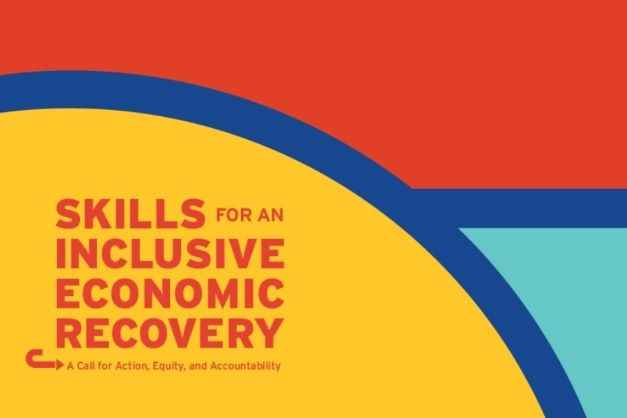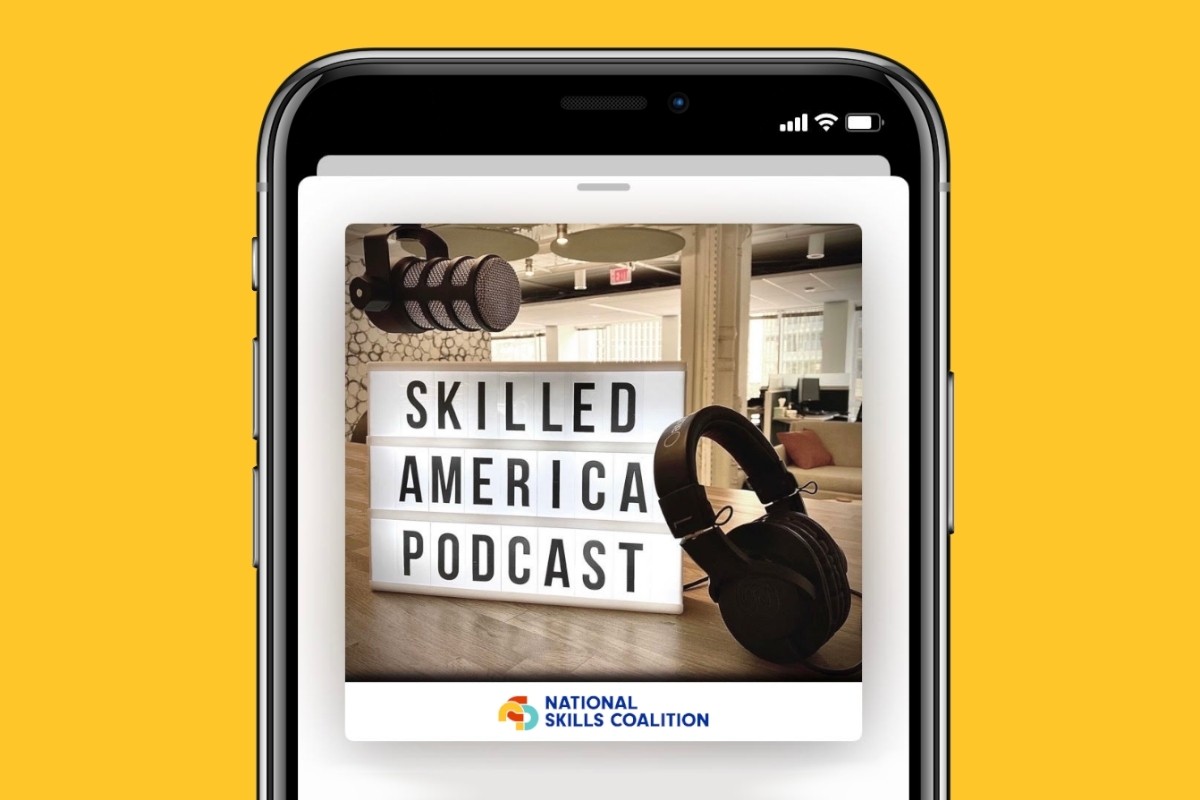
Skills for an Inclusive Economic Recovery
A call to action that will drive our organization’s work over the next two years, Skills for an Inclusive Economic Recovery is a set of generation-defining investments in inclusive skills policy that contribute to addressing the disproportionate impact of the economic crisis on communities who have long suffered inequities.
Read MoreWorkers of color, immigrants, and workers with a high school degree or less have suffered the greatest job losses during this pandemic and are overrepresented in jobs that have been hardest hit by the economic downturn. Yet policymakers still have not developed a national workforce and re-employment strategy that focuses on the workers and small businesses that have been most impacted by the economic crisis.
To address that need, we developed a set of policy goals, principles, and a call to action for state and federal policymakers to leverage skills policy to help build an inclusive economic recovery. These include:

The Skilled America Podcast
Throughout 2020, Skilled America talked to workers, advocates, and elected officials across the country to learn about how their industries and constituents were dealing with the pandemic.
Listen Now